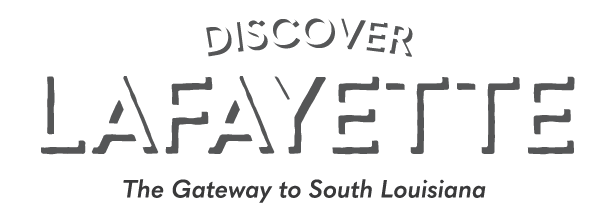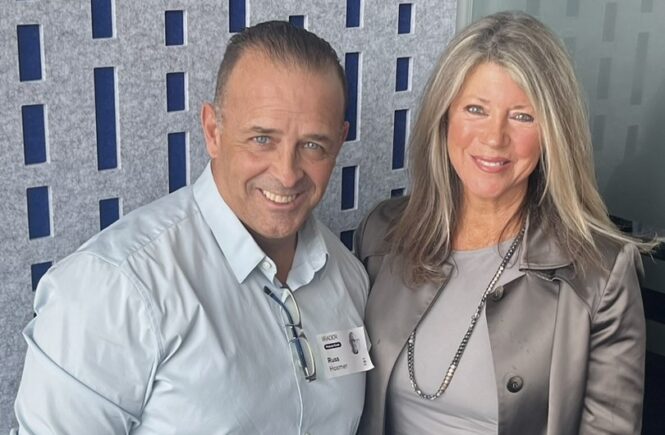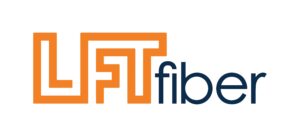Podcast: Play in new window | Download (Duration: 1:12:35 — 99.7MB)
Russ Hosmer, a U.S. Marine Corps veteran, certified life coach, former national-champion bodybuilder, and founder of Constant Progression, an online life coaching and personal development platform serving clients worldwide, joins Discover Lafayette to discuss his mission to help others reach their full potential.
Russ grew up in New Jersey, just outside of New York City. At 17, his parents retired and moved to Alabama. He studied at Jacksonville State University and worked in health club turnarounds: “We found the gyms and the health clubs that were in the red, and we brought them into the black. We got the management together, the business side of it, and got them better and rolling.”
Russ was a bodybuilder alongside business: “I was a state champion when I was a teenager… top five in the national championship. I was a national champion twice. Two times. Two years in a row as the first one to ever do that.” That era cemented discipline: “I was blessed. I was doing what I love… when you do that, you don’t ever work a day in your life.”
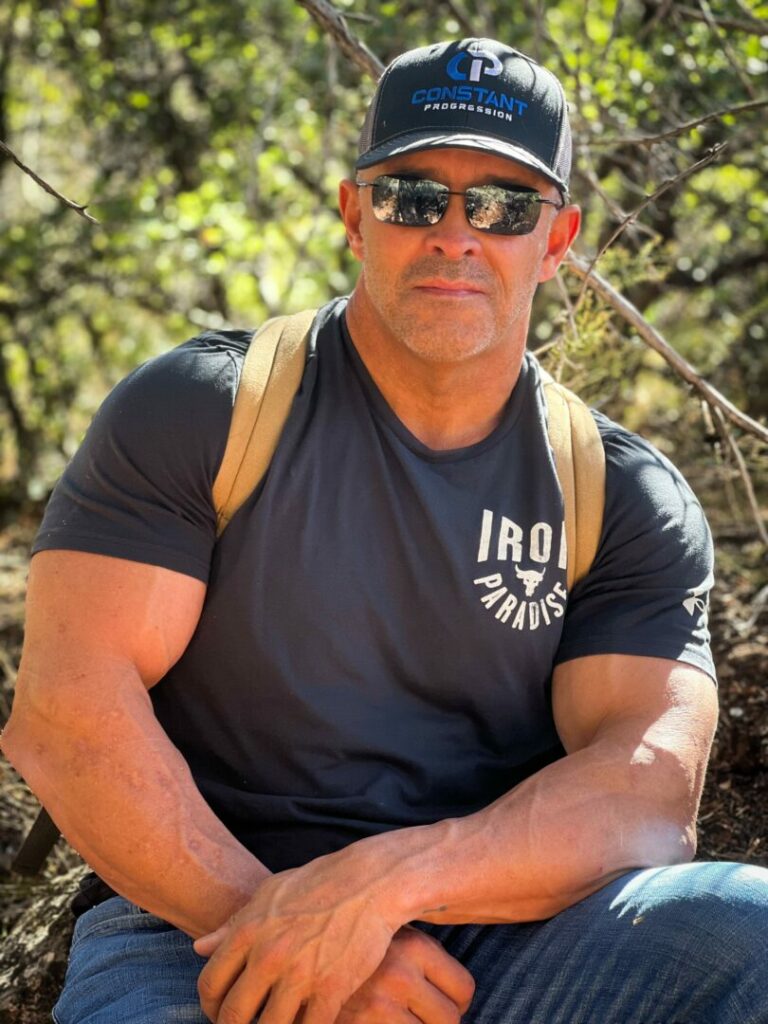
Choosing the Marines, Special Operations, and What Service Really Looked Like
“My family is Marine Corps. My grandfather was a WWII veteran and my brother was a Marine… it was almost like, well, I have to do that.” He enlisted on a whim, calling it “probably the greatest decision of my life.”
Boot camp at Parris Island: “They start drilling leadership principles into you the day you get there… It’s a transformation process. It’s the title,, being a Marine. So you have to earn it.” After graduating top of his class in the School of Infantry, he went to amphibious reconnaissance / special operations: “We’re like 1% of the Marine Corps.”
Operational reality: “Less than 1% of the Marine Corps see combat. We do more hospitable missions than we do combat missions. It’s urban warfare, small unit tactics. We don’t actually fight other countries like uniform military. it’s a different world we live in.” He traveled extensively: “I was in 37 countries in three years. I was deployed a lot. But I volunteered because that’s what I wanted to do.”
PTSD, Loss, and a Five-Year Turning Point
Russ is candid: “I do have severe PTSD… I didn’t know I had it for years. Then all of a sudden, it was really bad.” Compounding events:“I lost my corporate job during COVID. I had been a senior executive of a Fortune 500 company for twenty years. Then my dad died, and my mom died, then my older brother died.” It left him “in a very dark place, kind of lost.”
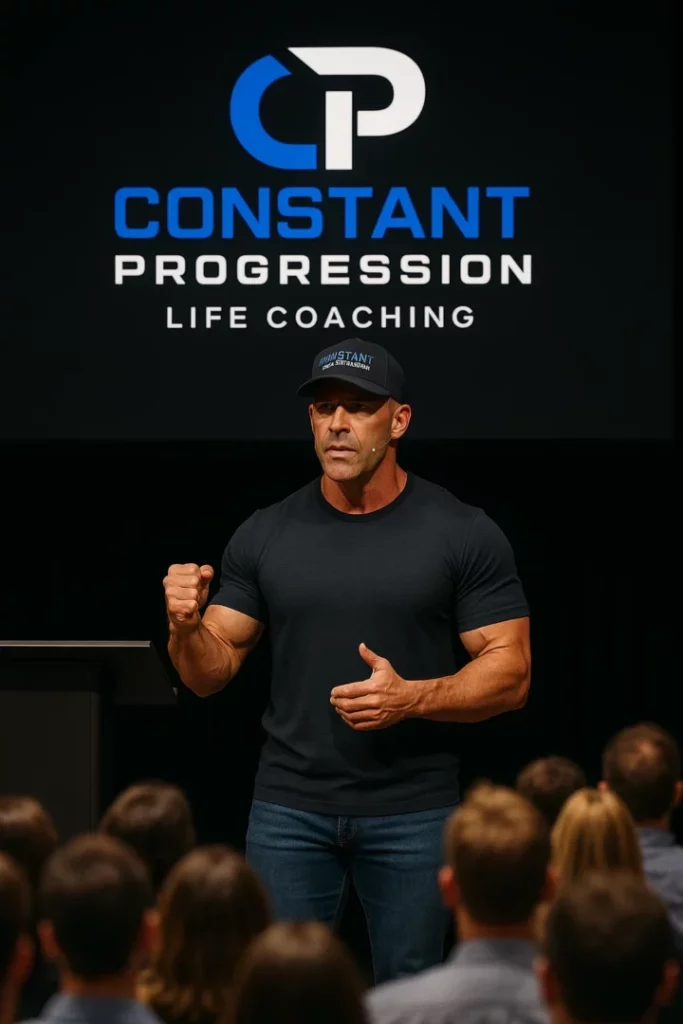
On the rate of veterans committing suicide, Russ says, “They say it’s 22 a day. There’s a lot more than that. They don’t have help, they think it’s a sign of weakness. But you admitting it and talking about it, that’s a sure sign of strength.” From a five-year journey, he created Constant Progression: “We’re always looking to be our best self. We’re all on that journey of constant progression.”
Training the Marines & A Vanderbilt Recovery Study That “Changed Everything”
After instructing at Marine Corps Recruit Depot Parris Island, Russ became a Physical Training Advisor for the Eastern Recruiting Region—“anything east of the Mississippi River… the whole East Coast.” His remedial programs “went before Congress and they actually enacted those into standard operating procedures… now a part of the Marine Corps training standards.”
Russ helped run a muscle recovery study with Vanderbilt University to reduce injuries and attrition: “We had a lot of lower body extremities’ injuries, especially with the female recruits… hip fractures and femur fractures, tibia fractures… kids nowadays… they don’t eat well.” Findings touched hydration, chow hall practices, food quantity by body weight, and training tweaks (including pull-up progression): “The best way to get better at pull ups is… do pull ups.” The study’s impact: “It changed everything… there’s a lot of moving parts.”
He also outlines cost-intensive reassignments that were utilized for rehabilitation: Medical Rehab Platoon, Physical Conditioning Platoon, and retrain—and why prevention mattered: “That costs a lot of money… so that’s what spiced out the whole muscle recovery study to help keep troops healthy.”
Private Sector: Biomechanics Lab, Pixar-Style Motion Capture, and Human-Centered Equipment
Recruiters pulled him to Life Fitness/Hammer Strength: “We were the largest. We set the standard for how fitness was developed.” Their $2M biomechanics lab used the “same technology as Pixar” to map motion with reflective markers: “We would mimic their movements… make the equipment… in alignment with how people move.”
Design philosophy: “Hammer Strength is built from the center outward… built around you.” On anthropometrics and building the best fitness equipment: “Fit a machine to work between someone who’s five foot one and six foot nine.” He notes Shaquille O’Neal contributed to hamstring designs. Elliptical geometry matched natural gait to avoid hip shift and back issues.
Russ advised Nature Made Vitamins and Otsuka Pharmaceutical: “They were interested in my muscle recovery study… looking at a new vitamin line… in line with muscle recovery… and better hydration.” He references Pocari Sweat—“a hydration drink that mimics sweat”—and presenting in Japan: “You have to talk slow and you have to pause… nobody spoke English… they bring you gifts… I learned more about culture.” A memorable attendee: “She was a gold medalist in archery… an incredible athlete.”
Constant Progression: How Russ Coaches Adults & Professionals Worldwide
“I’ve been doing it since 2023. The constant progression name says it all because we’re always looking to be better. We’re always looking to be our best self some kind of way. The constant progression term was a term that I had back before the Marine Corps. I had constant progression. When I was training in the Marine Corps, writing programs and training programs and standard operating procedures for the Marine Corps, I always used the term constant progression because it was so powerful to me. We’re all on that journey of constant progression.
Russ focuses on “mastering the mindset, building resilience, and achieving lasting transformation.” He focuses on structure: “One of the biggest pillars… without structure and clarity, you have chaos.” Clients commit to a morning routine, midday anchor, and evening routine—“non-negotiable.” Rule one: “Don’t reach for your phone” on waking: “You’re reacting to everybody else’s agenda.”
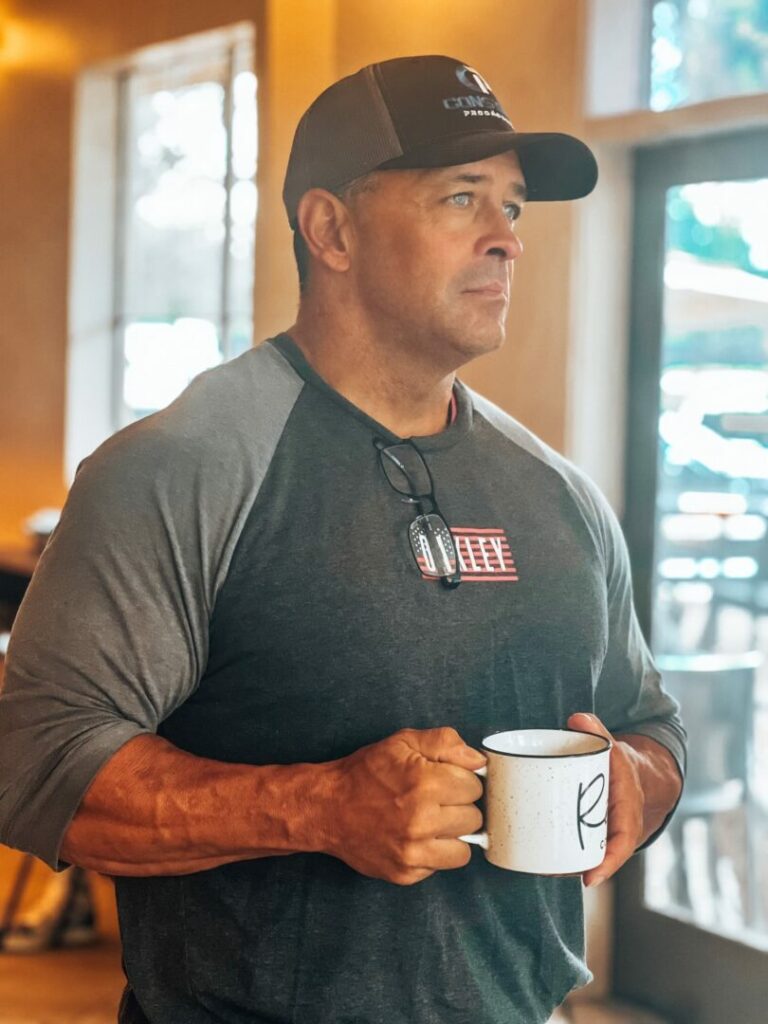
“You have to control the day when you get up in the morning and not let the day control you. One of the biggest pillars I have in my program is structure, because structure gives you clarity. Wwithout structure and clarity, you have chaos. If you don’t have that in business, you’ve got chaos. You need to look at yourself as if you’re running a business. If you’re running a business, you want to run it efficient as possible. Why would you run yourself any differently? With all my clients, I drill them with structure. We have a morning routine, a midday anchor, and an evening routine. That’s non-negotiable.”
He prescribes solitude: “Sit outside with no phone. Around the 30 minute mark, your brain starts to go into a different brain; watch how clear you get.” On habit formation: “They say it’s 90 days… you chip at it… five, ten minutes at a time.”
“We do neuroscience backed habit change. That’s what transforms you. The biggest thing to do is to learn about yourself and create new habits. And when you create new habits, it makes new neural pathways in your brain. We have a lot of neural pathways that are already there from from our life, from our grown up life, but we can change it. It’s called neuroplasticity. You’re able to change your thoughts and become more intentional and more aware of who you are.”
Four Pillars (in his words)
- Structure → Discipline → Focus → Clarity.
“Discipline is the biggest bridge… When you get to clarity, you become very powerful… Clients have ‘aha’ moments; ‘who they’ve always wanted to be. We give them the tools to build that person.”
Anxiety, Depression, and the Present
“Anxiety is you anticipating the future… trying to control things that you can’t control.”
“Depression is living in your past… letting your past dictate today.”
So he “bring[s] them back into center… how to be present today.”
PTSD Program & Nervous System Balance
PTSD coaching targets the autonomic nervous system: “You’re in your sympathetic [fight/flight]… we teach… how to stimulate the parasympathetic… through vagus nerve stimulation.” On the vagus nerve: “It’s in your neck… goes down to your gut… stimulating it calms you down.” Education itself sparks “aha” moments as clients learn triggers and counter-switches.
Grounding tools:
- Contrast shower (to help sleep): “Hot 1 minute, cold 1 minute… you’ll be out within three minutes. It’s a nervous system reset.”
- Sun/grounding: “15 minutes [sun] every day for mitochondrial function… walking the grass in your bare feet.”
Mindset, Accountability, and Emotional Intelligence
“Happiness is a choice. Stop external validating everything. 99.9% of the problems that we have, we are the cause. If you change your mind, you change your life.”
He keeps clients accountable with weekly one-hour sessions and touchpoints throughout the week.
Russ explained how emotions, not logic, drive decisions, using an interior design example. “If an interior designer has four different shades of yellow paint laid out, he’s not going to close the sale if he asks, ‘What do you think about these colors?’ But if he asks, ‘How do you feel about these shades of yellow? How would your guests feel when they come over to your house for brunch in this room?’—that changes the whole dynamic of the question.”
Russ’s larger coaching philosophy is as follows: “Shift from thought-based to emotion-based communication.” As Russ teaches, “Everybody buys on emotion; we’re emotional beings, not human doings.” By reframing questions around feelings, professionals, whether in sales, leadership, or relationship, can unlock clarity, connection, and more effective outcomes.
Gratitude & Journaling
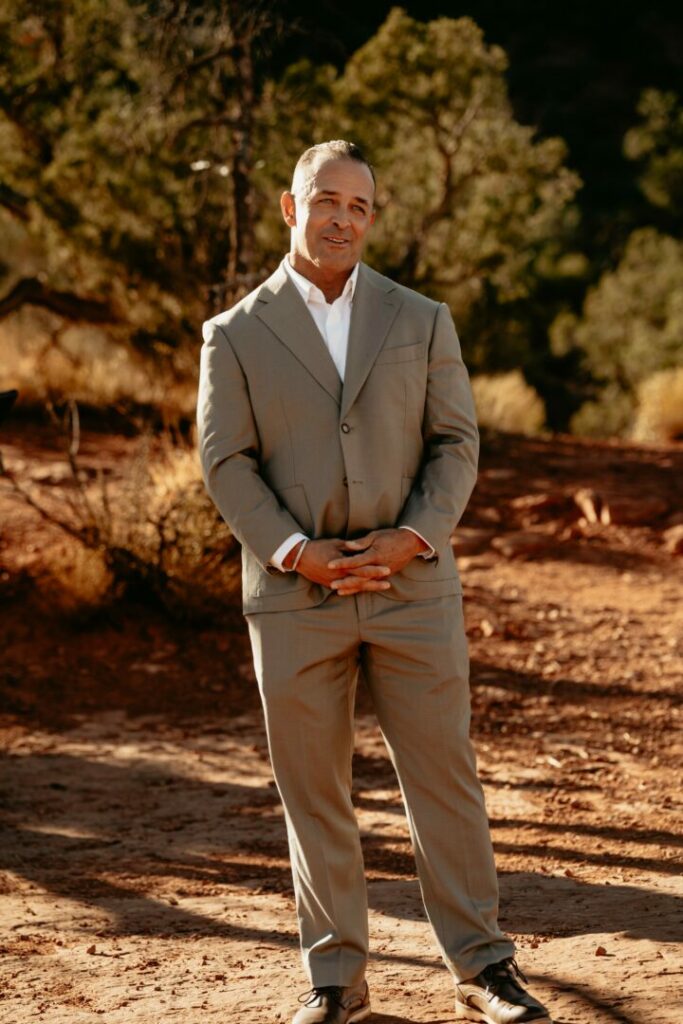
“The first thing to journal each morning is the three things that you’re grateful for… If you’re in a state of gratitude, anger and fear cannot exist.” Journaling is a brain dump that “10x” increases focus and clarity.
Nutrition & the Gut–Brain Axis
“Gut health is super important… there’s a whole lot of neurons in your gut.” Practical guardrails: “Read the labels. Shop the perimeter. Be careful about bioengineered food: even rice has fillers.”
Clients, Ages, and Regret vs. Discipline
His clients range from CEOs/entrepreneurs to professionals in their 20s and 60s: “The dynamic and the contrast is cool.” He shares: “Discipline really weighs ounces… regret weighs tons.”
He pushes the question “Who are you? But, not your job title. “What sets your soul on fire?” On faith and love: “Everything we do is out of love. The biggest thing is self love. If you don’t love yourself, you cannot love anybody or anything.”
Spouses & Caregivers Track
“We do PTSD training for the spouses and the caregivers… ‘What do you need?’… ‘I just need to feel like I’m safe.’… just put your hand on my shoulder… tell me I’m safe… That brings them down about 30 notches.”
Personal: Training, Cooking, and Music as Therapy
“I work out a lot. I like to cook. I have played piano since I was seven; I compose music.” He links music to neuroscience: “Pattern recognition. You play someone else’s music and your brain figures out the pattern, then you can write your own.”
Practical Takeaways (From Russ’s Playbook)
- Morning: “Don’t reach for your phone… take some time for yourself.”
- Solitude: “30 minutes changes your brain state… clarity follows.”
- Better Sleep Conditions: “Take a Contrast shower: hot 1 min, cold 1 min; afterward, you’ll be asleep within 3 minutes.”
- Daily grounding: “Sun for 15 minutes, and bare feet in the grass.”
- Journal: “Start with 3 gratitudes; focus on what you already have; gratitude and fear can’t coexist.”
- Mindset: “Structure → Discipline → Focus → Clarity.”
- Ownership: “Stop externalizing and looking for other’s support. Once you change your mind, you change your life.”
“Everybody has so much potential inside them… It’s there. And it’s you need to find it and get there.” Through Constant Progression, Russ helps clients build the structure and nervous-system tools to walk into being that person in the future.
We want to thank Russ Hosmer for his message in how we can all become our best self. For more information, check out Russ Hosmer at https://www.facebook.com/russ.hosmer.7/
